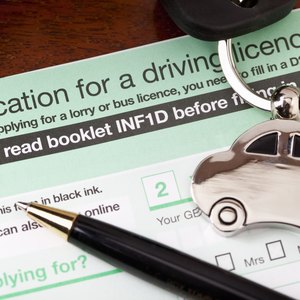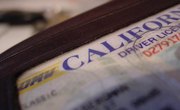
While it may seem strange to purchase car insurance when you don't have a license, there are actually several reasons to do exactly that. Finding an insurance company willing to issue an auto insurance policy to an unlicensed driver is not an easy task, but it can be done.
Here are several situations when you may want to purchase car insurance with no license.
Reasons to Buy Car Insurance Without a License
There are a number of reasons you might buy car insurance even though you don't have a valid driver's license and don't drive a car.
You Don’t Care to Drive
You may want to purchase insurance if you can't drive or don’t want to drive because of health reasons, but you are a car owner and can afford to hire a personal driver. If you're a senior and don't feel comfortable driving, you could have a younger relative or caregiver who is a licensed driver take over the driving for you. If that person is going to drive your car regularly, you should designate and insure that person as the primary driver on the insurance coverage.
You Need to Insure a Young Driver
Another situation where you'll need insurance is when you need to insure a driver under the age of 18 or someone who has a learner's permit. Since minors cannot legally enter into a binding contract, you may need to purchase a car insurance policy on their behalf, even though you won't be driving the vehicle yourself.
You Own a Vintage Vehicle
If you own a vintage or collectible car, it's wise to have insurance that covers theft or vandalism. Even if the car is stored in a garage, bad things could still happen, like a tree falling on the garage and breaking the windshield. Although you don't plan to drive the car, you may still want to have insurance.
Your License Has Been Suspended
If you have a suspended license or your license has been revoked, the court may require you to obtain SR-22 insurance to get your license back. An SR-22 is issued by insurance carriers and is proof that you have insurance as required by the laws of your state.
How to Get Car Insurance Without a License
Under normal circumstances, a car insurance company uses your driver's license number to check your driving history and determine if you're a high-risk driver. They do this to assess their risk of having to pay the bills if you're involved in an accident. Not having a driver's license removes the ability of the insurance company to make a risk assessment, so you have to give them another way to approve a policy for you.
Here are several ways to accomplish that objective.
Designate a Licensed Primary Driver
You can own your vehicle, but you must name someone else as the primary driver. This could be your spouse, a relative or someone else who lives with you. Some carriers only accept someone as a primary driver if they live in the same residence with you, but other carriers may not have this restriction.
Make sure you're familiar with the driving record of the person you want to name as a primary driver because the insurance company is going to base your premiums on that person. If your desired primary driver has a poor driving history, you could still be denied insurance or be approved but with very high rates.
List Yourself as an Excluded Driver
The most important factor in getting car insurance without a license is to specifically exclude yourself as a driver.
Add a Co-Owner to Your Car's Title
If your car is paid off, you could add another person with a license to your vehicle’s title and designate them as the primary driver. You would still need to exclude yourself as a driver. The insurance company would then be able to issue a policy based on the demographics and driving history of the co-owner.
This method should probably be a last resort, since you would be giving up ownership in your vehicle.
Set Up a Parked Car Policy
If you're planning on storing your car or parking it in a garage, you could drop your liability and collision coverage and keep only the comprehensive insurance. Auto insurers usually won't require a driver's license since the vehicle will be parked and not driven.
Comprehensive coverage keeps your car protected against dangers such as fire, flooding, vandalism or theft. However, if you still have a loan outstanding on your vehicle, your lender may not let you drop the other coverage.
Get Quotes From Several Carriers
Finding an insurance company that's willing to issue an insurance policy without a license will not be easy. You probably won't have much success with the large, major carriers, so you need to concentrate on contacting the smaller, regional firms in your area. One good approach is to contact an insurance agent who is authorized to issue policies with multiple carriers. These agents would know which carriers would be most likely to accept your application.
You may have to apply with non-standard insurers to get insurance. Numerous small insurers are set up specifically for high-risk drivers.
Another tactic that may help you get approved is to take a higher deductible. Agreeing to a larger deductible is an indication to the insurance company that you're willing to take more financial risk yourself rather than putting all the burden on them. This improves the odds of getting accepted. In addition, a higher deductible results in lower monthly premiums.
Buying and Registering a Car Without a License
Legally, you don't need a driver's license to buy a car. But every state has laws that prohibit driving without a license.
Follow these steps if you’re planning to purchase a car without a license::
- Contact your state's department of motor vehicles to find out which documents you'll need to buy a car without a license.
- Call several auto insurance companies to make sure you'll be able to get insurance without a license and find out what documents or conditions they require.
- Contact the dealer before going and make them aware that you want to buy a car without a license. This way they can be prepared when you come in and may have you start by meeting with the sales manager. Some dealerships require proof of insurance and a driver’s license before letting you go for a test drive. Other dealers may be more interested in making a sale than your legal status to drive.
Registering a car doesn't necessarily require a license. In most states, you can register a vehicle with a photo identification and proof of insurance.
References
- Car and Driver: Can You Get Car Insurance Without a Driver's License?
- The Hartford: Car Insurance With No License
- Insurify: Car Insurance With No License: Is It Possible?
- Policygenius: Can You Get Car Insurance Without a License?
- Bankrate: How to Get Car Insurance With No License
- iii.org. "Is it legal to drive without insurance?" Accessed Jul. 16, 2020.
- AutoInsuranceQuote. "Primary Driver." Accessed Jul. 16, 2020.
- PolicyGenius. "Can you get car insurance without a license?" Accessed Jul. 16, 2020.
- AutoInsurance.org. "Auto Insurance for Parked Cars." Accessed Jul. 16, 2020.
- Progressive. "What is an SR-22?" Accessed Jul. 16, 2020.
Writer Bio
James Woodruff has been a management consultant to more than 1,000 small businesses. As a senior management consultant and owner, he used his technical expertise to conduct an analysis of a company's operational, financial and business management issues. James has been writing business and finance related topics for work.chron, bizfluent.com, smallbusiness.chron.com and e-commerce websites since 2007. He graduated from Georgia Tech with a Bachelor of Mechanical Engineering and received an MBA from Columbia University.

